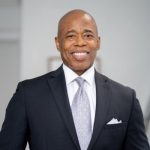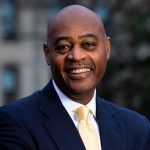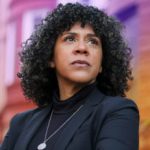What will you do to address the childcare crisis?
This hinders women’s workforce participation, economic stability for families, and access to quality and affordable early education for children.
 Maya Wiley
Maya Wiley
I have put forward a plan for Universal Community Care — is an ambitious interagency plan that rebuilds economic growth in sectors dominated by women of color and ensures that these jobs are good jobs, addresses the crisis of affordable childcare and eldercare, and fights for fair wages and protections for workers in the care economy. Universal Community Care recognizes that care exists in many forms: from paid childcare and elder care to direct services provided by frontline nonprofit workers to care provided within the home by family, to neighbors helping neighbors. This model will redirect $300 million in diverted resources from incoming NYPD and DOCCS cadet classes to give 100,000 high need informal caregivers a $5,000 annual stipend to compensate them for their labor. Using the Universal Community Care Model, I will also build community centers providing free childcare, eldercare, and other services in each neighborhood. And it will create strong, meaningful worker protections for our city’s care workers.
Read the Full Questionnaire
Maya Wiley Andrew Yang
Andrew Yang
I believe affordable and accessible childcare should be a right and I understand that the most affordable and enriching childcare of all –the public school system– can have a major role to play in stepping in to fill this gap. That is why I support expanding the widely successful universal pre-k program to universal 3-K as the city and its finances recover. Over time, there is no reason this cannot be pushed even further so that all three year olds have a safe and free space to learn and interact with other children. Parents shouldn’t be stuck in a cycle of poverty because they are paying too much for childcare while trying to earn a living to provide for their child.
New York City also has some of the most stringent regulations in the country for opening a new day care center, meaning all-in costs to create a new daycare center can run over a million dollars. And, while those rules might be well intended, their impact is to restrict supply and force families and caregivers to improvise their own solutions. To the extent possible, where state law does not preempt action, I will work to reduce these regulatory burdens and make it easier to increase the supply of affordable, quality childcare options.
I also support opening day care facilities in NYCHA buildings. Many parents who need daycare live in NYCHA facilities and many providers of daycare services live in NYCHA facilities. It makes no sense to take these properties offline as potential daycare sites. Instead, I will liaise with NYCHA communities to facilitate the opening of a daycare center in at least 5 NYCHA buildings per borough and work with these entrepreneurs to access zero and low-interest loans through the People’s Bank, which will support start-up costs and reduce barriers to opening.
I will also overhaul the voucher system for childcare. Current vouchers are of such low value that they are often not accepted by private providers and go unused. Between December 2019 and December 2020, the number of vouchers dropped 25% and lost tens of millions of dollars in funding. I will restore the budget for vouchers and increase the value so they are more widely accepted.
Read the Full Questionnaire
Andrew Yang
Eric Adams
Childcare in New York is outrageously expensive—and lack of affordable childcare is harming parents’ ability to work and their children’s futures.
Children without adequate childcare—especially during the first 1,000 days of life—are much less likely to succeed, and are much more likely to be Black and Brown. It is a moral imperative that we provide childcare for every parent who cannot afford it, starting with children ages 0 to 3. This will close a massive gap in care for the youngest New Yorkers at the most critical point of their brain development, and free up parents—especially women of color—to power our economy and excel in their own careers. We can start by removing the biggest cost to childcare providers of young children: space. We will do this by prioritizing space in City-owned buildings for childcare, offering density bonuses to residential building developers who guarantee permanently free or low rent to providers, and with a tax break to office building owners and other private building owners who create free space for providers—savings which will be required to be passed on to parents. But we must also get much more out of our federal government.
Read the Full Questionnaire
Eric Adams
Shaun Donovan
I will work with my Chief Equity Officer to make sure that families across the city all have access to the necessary services like child care so that parents who want to return to work are able to do so.
Early childhood classrooms are among the most segregated educational spaces in the city and country, due to a mix of residential segregation, family preference, and the fragmented early education landscape, with its mix of longstanding, targeted public programs such as Head Start and Early Head Start, newer universal and targeted programs, and private programs that are frequently unaffordable for working families. The city should work with DOE and CBO child care provider centers to find creative ways to encourage more integration of programs and classrooms through subsidies and technical assistance to providers to blend public (Head Start, state, city) and private funding sources.
Read the Full Questionnaire
Shaun Donovan
Kathryn Garcia
We are in a childcare crisis. We have 1 in 4 women considering stepping back from their careers today, and unemployment due to COVID-19 has impacted women much more than it has men. Part of any economic recovery and equity plan must include an expansion on Pre-K for all to include free childcare for ages 1-3 for all families with income less than $70K. Free childcare is key to economic mobility.
Read the Full Questionnaire
Kathryn Garcia Ray McGuire
Ray McGuire
No family should have to choose between their job and taking care of their children. We need to make affordable childcare available to every family, creating good childcare jobs and helping parents reenter the workforce. As part of my “Cradle to Career” education strategy, I will launch Comeback: Affordable Childcare for All — an initiative that will guarantee every parent access to quality early childcare and education for infants and toddlers. This initiative will provide operating funds and capacity building to existing programs, as well as an urgent grant program to help providers launch new programs in underserved “childcare deserts.” These programs will be designed to address all aspects of early childhood development, which will help all kids enter school on a level playing field and ready to succeed. I will also partner with CUNY to provide professional development to providers to ensure that every child in New York City has access to a high quality early childhood development experience.
Read the Full Questionnaire
Ray McGuire Dianne Morales
Dianne Morales
To ensure that people are able to return to work and regular activity, we need a different type of economic growth that centers the well being and quality of life of all New Yorkers. This includes building upon New York City’s existing pre-K and 3-K programs to ensure that children of all ages have access to safe, accessible, and educationally enriching child care regardless of a family’s ability to pay. However, my administration knows we must go further than that. As Mayor, I will build out the care economy with quality, universal public child care and paid family leave, so that women (and all parents) are able to remain in the workforce while caring for young children. This is a key priority of mine, and one I look forward to advancing as mayor.